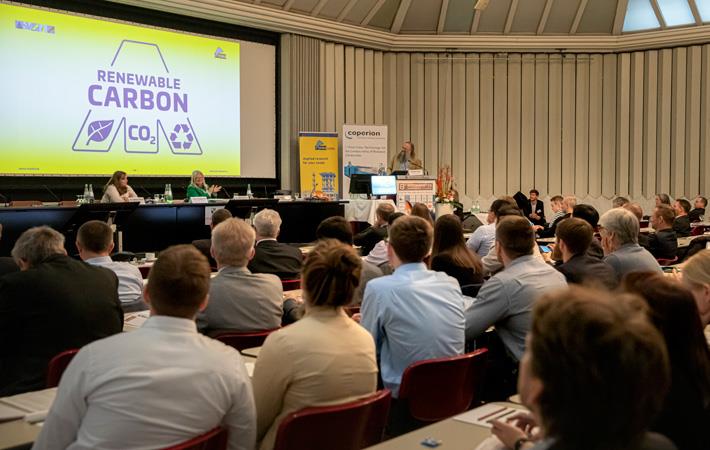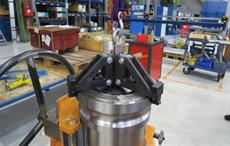KNN Cellulose from the Netherlands, Bcomp from Switzerland, and Golden Compound from Germany are the winners of the “Biocomposite of the Year 2019” award. The award was given to developers of new applications for biocomposites at the “8th Biocomposites Conference Cologne”. The innovations indicate the versatility of commercially available biocomposites.
There were 200 participants and 30 exhibitors at the conference which has become the meeting place for developers, producers and potential users worldwide. A large number of new companies have taken up and further professionalised the topic of biocomposites in recent years. These include large companies from Sweden and Finland as well as start-ups from various countries. Market analyses of nova-Institute show a production volume of 470,000 tonnes in Europe for the year 2018, in two years 500,000 tonnes will be exceeded.KNN Cellulose from the Netherlands, Bcomp from Switzerland, and Golden Compound from Germany are the winners of the "Biocomposite of the Year 2019" award. The award was given to developers of new applications for biocomposites at the "8th Biocomposites Conference Cologne". The innovations indicate the versatility of commercially available biocomposites.#
Demand for alternatives to classic plastic products is increasing. Currently, up to 80 per cent of plastics can be replaced by biogenic fillers such as wood flour and cork or by natural fibres for reinforcement. Biocomposites are now available for almost every application - packaging, consumer goods, toys, handles, shoes, façade and terrace elements, floors, car parts and even furniture. This years’ nominated companies provided a good overview of the growing application sectors for biocomposites: automotive, packaging, consumer goods, cladding, music instruments and facade elements.
Golden Compound won the first place with its certified home compostable coffee capsules. HOMEcap is the world's first and only home compostable coffee capsule certified with “OK Kompost Home”. It was successfully launched on the market at the beginning of the year. Biodegradation in home compost avoids considerable waste streams. The HOMEcap is made from a unique compound comprising PTTMCC Biochems bio-based polymers PBS and PBSA mixed with sunflower seed shells and inorganic fillers. It comes with a paper and cellulose based lid, sealable to the capsule without additional glue, home compostable as well. The material composition results in low oxygen transmission rates, which allows to avoid additional barrier packaging and is therefore reducing waste.
KNN Cellulose took the second place with biocomposite granulates made from recycled toilet paper. The recycled toilet paper is separated at a sewage treatment plant, and can be mixed with a variety of polymers such as bio-based polymers, PLA or PHA. The product fits ideally into the recycling economy as it adds value to previously unused cellulose waste streams. The granules are suitable for standard injection moulding and extrusion lines. Current applications include flower pots, claddings, fences, terrace planks and boxes.
Bcomp got the third place with its powerRibs, a composite material made of natural fibres for high-performance applications in lightweight construction. Thanks to powerRibs technology, a reinforcing grid inspired by the thin veins in leaves that provides maximum stiffness at minimum weight, natural fibres can achieve the performance of carbon fibres in a motorsport body and thus replace them. The result is a 75 per cent reduced carbon dioxide footprint, 30 per cent lower costs and improved safety without toxic dust.
Fibre2Fashion News Desk (SV)


